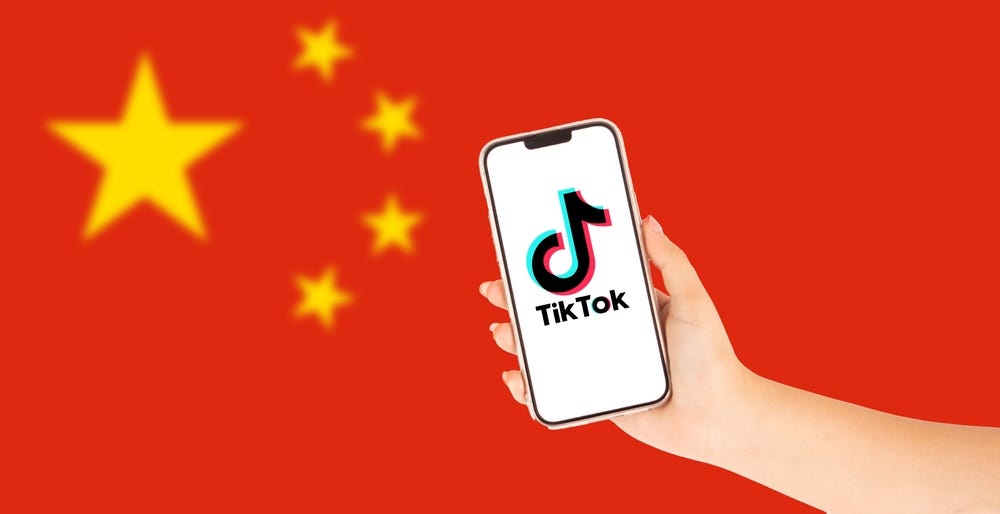E-Pluribus | April 13, 2023
Where DEI takes a holiday; the Left's China blind spot; and the free speech script, it has been flipped.
A round-up of the latest and best writing and musings on the rise of illiberalism in the public discourse:
Scott Yenor: Where’s the DEI at the HBCUs?
With diversity, equity, and inclusion, we are told, education just can’t work and simply perpetuates a historically discriminatory system. If that’s so, Scott Yenor at City Journal asks, then why are HBCU’s [Historically Black Colleges and Universities] functionally exempt?
The lack of DEI at HBCUs may seem surprising in light of what we are commonly told about the values of diversity, equity, and inclusion. Diversity, we are told, means “the presence of differences in a different setting.” Differences of race, gender, religion, and so on “enrich our workplace” and make for a great national strength—in fact, our greatest strength, per President Biden. Equity, we are informed, is about providing all people with opportunities to grow, as is demonstrated when an institution “looks like America” by mirroring its demographics. Inclusion, it is said, involves “welcoming all people regardless of race, ethnicity, sex” and so on, by showing that “everyone is valued, respected and able to reach their full potential.”
[ . . . ]
Equity is said to mean equality of outcome. But concerns about equity flow in one direction only. University activists demand equity only when they want more blacks in the student body or on the faculty, or more female students or faculty members. No one demands that Texas Southern, one of the nation’s largest HBCUs, admit more whites, though its student body is more than 90 percent black. Fewer than 30 percent of engineering students nationwide are females, so programs exist to promote women in STEM. Fewer than 25 percent of education students are males—but no programs exist to motivate men to become teachers. Fewer than 30 percent of nursing students are men, but again, we see little effort made to get more male nurses. About 60 percent of college students are females, but this imbalance is not seen as a crisis, even as it is widely acknowledged that many men are failing to prosper.
Diversity is the lodestar of our new morality. Yet diversity does not mean having lots of difference in different settings. The really existing definition of “diversity” is “fewer whites and males.” Engineering has a diversity problem because it has too many whites, Asians, and males. Majority-white campuses have diversity problems. Those problems must be fixed. Nursing schools and HBCUs, by contrast, do not have diversity problems. Diversity means privileging the supposedly marginalized and marginalizing the supposedly privileged.
Read it all.
Geoffrey Cain: The Left, TikTok, and the World’s Biggest Police State
The Left professes an abhorrence of authoritarianism and the suppression of democracy. Why then, Geoffrey Cain asks at Persuasion, do those on the political left seem to downplay the threat posed by the Chinese Communist government and its diverse toolbox of global influence?
In trying to work out why a movement that is so attuned to social justice violations is so indifferent when it comes to those committed by the CCP and its allies, my sense is that the answer has to do with a long history of the left’s superimposing its own culture wars on China.
Woke leftists conveniently overlook the true expanse of empire outside the West. The logic goes that criticizing TikTok or any other Chinese company is racist, because China, as a non-white power, is the victim of Western aggression, not a perpetrator with its own agency.
[ . . . ]
The left has long struggled to contend with China’s imperialism and authoritarianism. This failure was perhaps nowhere more pronounced than when it was least defensible—in the era of Mao Zedong.
[ . . . ]
Though Maoism revealed itself in due course as a brutal ideology responsible for mass atrocities, Western Maoists consistently downplayed the devastation of the Cultural Revolution in which millions died as a result of Mao’s policies.
Recognizing U.S. leftists’ gullibility, the CCP learned how to exploit Western passions as China opened to the world in the 1970s. CCP officials proved skilled at manipulating Western revolutionaries and academic China experts, stoking their egos in exchange for their political sympathies.
[ . . . ]
Since then, China has abandoned Maoism and has opened its markets while keeping a tight grip on politics. Prominent leftists, meanwhile, have shifted their perspective from Maoist sympathies to identity and gender politics but retained the same myopia when it comes to China. What connects the perspective of the Western Maoists during the Cold War with the woke left today is a surprising disregard for diversity of perspectives within China. The CCP is seen as the voice of China and criticism of it “racist” or “anti-Asian”—which is a somewhat baffling perspective for people who are themselves Asian and find themselves persecuted or silenced by the CCP’s policies.
Read the whole thing.
Jonah Goldberg: The Free Speech Switcheroo
In his latest G-File newsletter for the Dispatch, Jonah Goldberg notes the shift in recent years on how both the Left and the Right view free speech. Reflecting on his recent conversation on his podcast with Sarah Isgur, Goldberg ponders the reasons for the shift and how the current political, cultural and even technological environment have impacted both sides.
Excluding some counterexamples on the illiberal right, including the frontrunner and runner-up for the GOP nomination, free speech has never been more popular among conservatives. Defenses—and defenders—of the First Amendment—or “free speech principles”—are not always entirely consistent or coherent. For instance, content moderation on social media sites is often dubbed “censorship” and in violation of the “spirit” of the First Amendment, even though the actual First Amendment allows for content moderation, and even the sites that claim to be committed to free speech moderate plenty of content. Trump’s Truth Social touts itself as opposed to censorship, but from the get-go it censored criticism of Trump and other unacceptable expression and content and still does so all the time. Or so I’ve read as I do not have an account there, for all the obvious reasons.
That’s fine. Content moderation is good and Truth Social, Parler, Twitter, Facebook, et al., have the right to do it. That doesn’t mean they always do it the best way, but so what?
Anyway, the right loves to talk about its principled commitment to free speech maximalism a lot these days.
Meanwhile, the left is more convoluted on the matter. It will often express similar principled commitment to the First Amendment’s protections of the press, but the First Amendment’s protections of speech often elicit handwringing or censorial outrage. This distinction—which is real, the First Amendment mentions both free speech and freedom of the press—nonetheless overlaps with a certain ethos on parts of the left. Journalists from established outlets (that just happen to be ideologically aligned) need every protection imaginable. Democracy Dies in Darkness®, in case you hadn’t heard. This, I think, is part of the left’s deference to the managerial class (as James Burnham would put it). The “experts”can be trusted with unfettered freedom, but the unwashed not so much. This is why the crazy idea of licensing journalists will not die.
That brouhaha at Stanford last month illustrates the point in microcosm. It wasn’t that the visiting judge didn’t have the right to speak, it’s just that the administrator present didn’t think “the juice was worth the squeeze.” In other words, yeah, sure, you have the right to say what you want (the juice), but the consequences of the speech—i.e., students having their ideological commitments questioned or criticized to the point of hurting their feelings—just don’t pass some kind of social justice technocrat’s cost-benefit analysis (the squeeze).
Read it all here.
Around Twitter
Note: Tweet embedding woes continue.
The New York Times published an article on an incident at Cornell University where a student group demanded “trigger warnings” for potentially “upsetting” classroom content and administrators rejected the proposal. University of Alabama Assistant Professor A.J. Bauer belittled the story, suggesting there are bigger fish to fry, but Jeffrey Sachs and Conor Friedersdorf say both issues are worth covering:
Harvard professor Jeffrey Flier is enthusiastic about a new organization at the university:
And finally, the Babylon Bee is suing the State of California over a new law they saw amounts to censorship. The Bee’s Seth Dillon explains why the law’s supposed good intentions don’t hold up to scrutiny:











